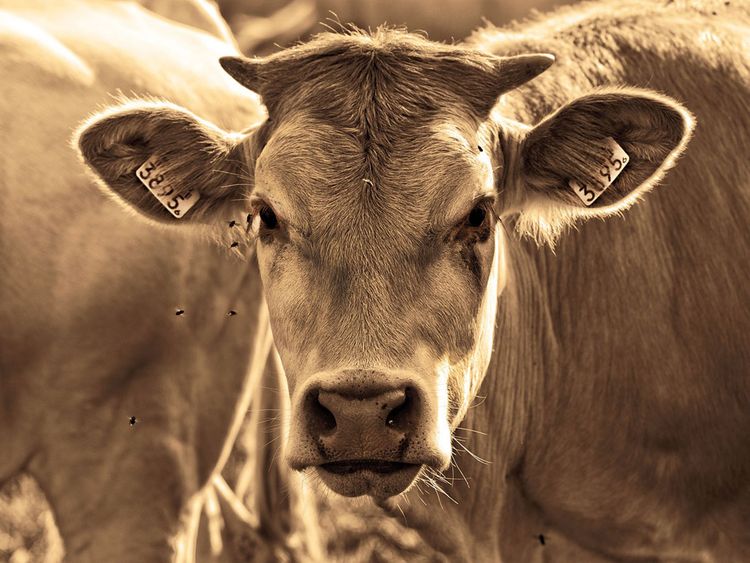Heat Stress Poses Dire Threat to Over One Billion Cows Worldwide, Warns New Study

Paris, France – A stark new research study published on Thursday projects that over one billion cows globally could face severe heat stress by the end of the century if climate change continues unabated. The repercussions of such stress could jeopardize the fertility, milk production, and overall well-being of these animals.
Currently, nearly 8 out of 10 cows worldwide are already grappling with excessive body temperatures, labored breathing, bowed heads, and open-mouthed panting – clear indicators of severe heat stress, as per the comprehensive study. In tropical regions, this condition affects a significant 20 percent of cattle throughout the year.
Projections show that these alarming numbers could escalate further if cattle farming expands in climate-sensitive regions such as the Amazon and Congo basins, which are anticipated to experience faster temperature increases compared to the global average.
Should greenhouse gas emissions continue to rise unchecked, the research anticipates that by 2100, heat stress will become a persistent problem in regions including Brazil, southern Africa, northern India, northern Australia, and central America.
Lead author Michelle North, affiliated with the University of KwaZulu-Natal in South Africa, emphasized, “Decisions about land-use change play a pivotal role in determining the extent of heat exposure among cows. Deforestation for livestock expansion aggravates climate change and exposes millions more cattle to severe heat stress.”
The study, featured in Environmental Research Letters, presents a troubling worst-case scenario – a doubling of cattle husbandry in Asia, an over fourfold increase in Africa, and substantial growth in Latin America.
However, the research also offers hope. With significant reductions in greenhouse gas emissions, including measures to curb the expansion of cattle farming, the number of affected cows could potentially be halved in Asia and reduced by four-fifths in Africa.
Commercial cattle ranchers are already experiencing financial losses attributed to heat stress, amounting to an annual cost of up to $1.7 billion in the United States alone. Yet, these ranchers often have access to insurance, favorable relationships with banks, and loan facilities to counteract heat-related losses.
In contrast, the consequences are dire for small-scale farmers when climate-related disasters strike. Michelle North pointed out that even seemingly “negligible” losses can lead to the loss of livelihoods for these farmers.
The study’s findings also underscore the potential impact on global milk supplies. Under high greenhouse gas emission scenarios, milk supplies could decrease by 11 million tonnes annually by 2050. Even under aggressive emission reduction efforts, a substantial portion of this loss, mostly in Asia and Africa, would still persist, compounding existing challenges faced by dairy farmers in these regions.
While the prospects may seem daunting, immediate interventions offer some respite. Overheated cows can be aided by providing access to shade, installing fans, and adjusting feeding schedules to cooler parts of the day. However, the study underlines that these measures provide temporary relief and cannot address the overarching issue of escalating global temperatures.

















Facebook Comments